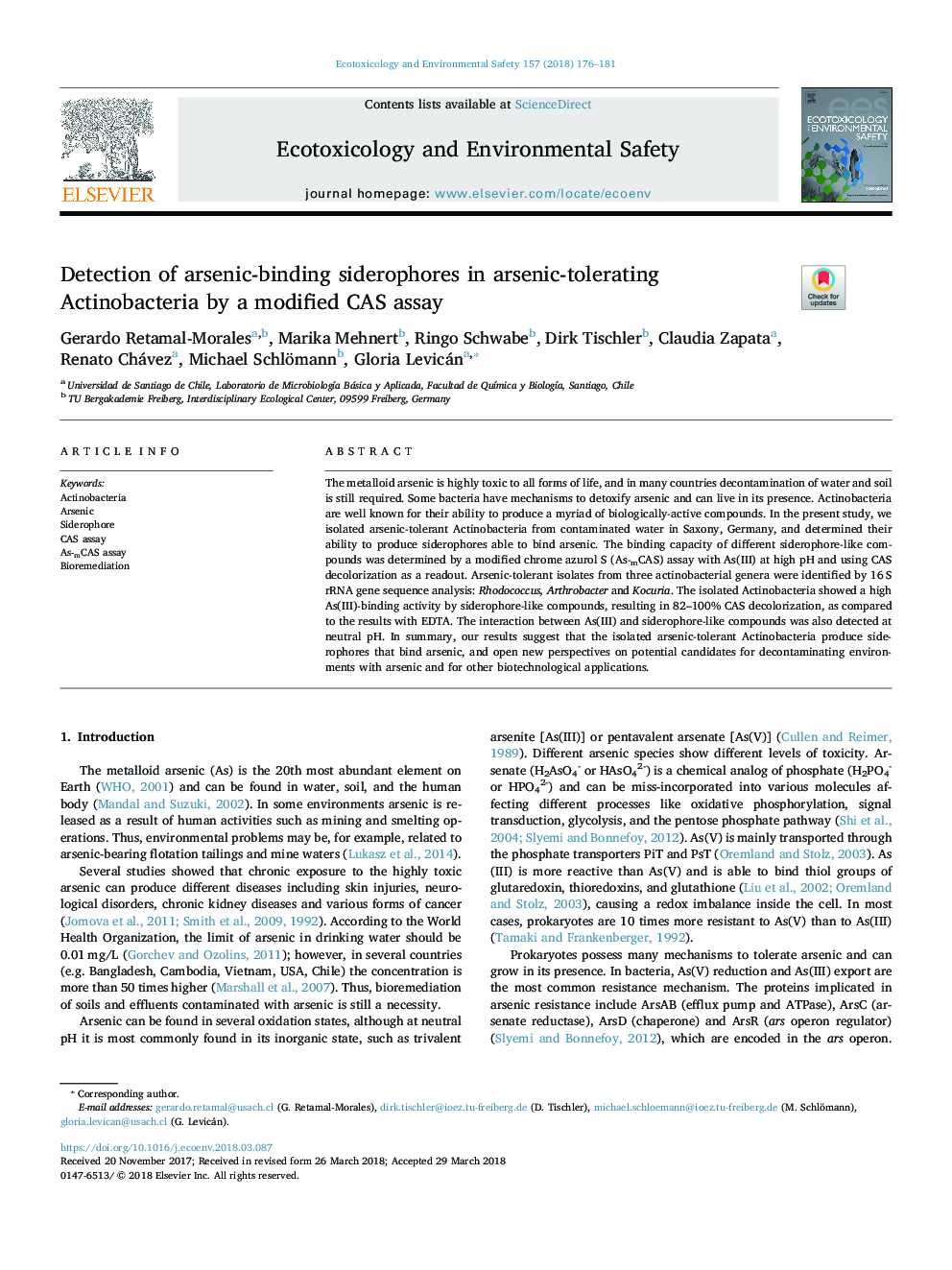| Article ID | Journal | Published Year | Pages | File Type |
|---|---|---|---|---|
| 8853819 | Ecotoxicology and Environmental Safety | 2018 | 6 Pages |
Abstract
The metalloid arsenic is highly toxic to all forms of life, and in many countries decontamination of water and soil is still required. Some bacteria have mechanisms to detoxify arsenic and can live in its presence. Actinobacteria are well known for their ability to produce a myriad of biologically-active compounds. In the present study, we isolated arsenic-tolerant Actinobacteria from contaminated water in Saxony, Germany, and determined their ability to produce siderophores able to bind arsenic. The binding capacity of different siderophore-like compounds was determined by a modified chrome azurol S (As-mCAS) assay with As(III) at high pH and using CAS decolorization as a readout. Arsenic-tolerant isolates from three actinobacterial genera were identified by 16â¯S rRNA gene sequence analysis: Rhodococcus, Arthrobacter and Kocuria. The isolated Actinobacteria showed a high As(III)-binding activity by siderophore-like compounds, resulting in 82-100% CAS decolorization, as compared to the results with EDTA. The interaction between As(III) and siderophore-like compounds was also detected at neutral pH. In summary, our results suggest that the isolated arsenic-tolerant Actinobacteria produce siderophores that bind arsenic, and open new perspectives on potential candidates for decontaminating environments with arsenic and for other biotechnological applications.
Related Topics
Life Sciences
Environmental Science
Environmental Chemistry
Authors
Gerardo Retamal-Morales, Marika Mehnert, Ringo Schwabe, Dirk Tischler, Claudia Zapata, Renato Chávez, Michael Schlömann, Gloria Levicán,
